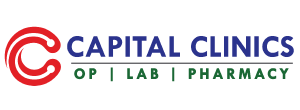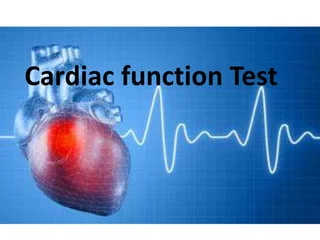- Home
- Departments
Departments Of Cardiac-Test
Cardiac-TestCardiac tests are medical procedures used to assess the function and health of the heart. These tests are essential for diagnosing various cardiac conditions. monitoring heart health, and guiding treatment decisions. Here are some common cardiac tests:
1. Electrocardiogram (ECG or EKG): This test records the electrical activity of the heart through electrodes attached to the skin. It helps diagnose heart rhythm abnormalities, such as arrhythmias, and identify signs of heart attacks or ischemia.
2. Echocardiogram: An echocardiogram uses sound waves (ultrasound) to create images of the heart's structure and function. It provides valuable information about the heart's chambers, valves, and pumping function, aiding in the diagnosis of conditions like heart failure, valve disorders, and congenital heart defects.
3. Stress test: Also known as an exercise stress test or treadmill test, this assesses the heart's performance during physical activity. It helps diagnose coronary artery disease by monitoring the heart's response to increased workload. Sometimes, medications may be used instead of exercise to stress the heart.
4. Holter monitor: This portable device continuously records the heart's electrical activity over 24 to 48 hours or longer. It's used to detect intermittent arrhythmias and evaluate symptoms like palpitations or dizziness that may occur during daily activities.
5. Cardiac catheterization: In this invasive procedure, a thin, flexible tube (catheter) is inserted into a blood vessel and guided to the heart. Contrast dye is injected, and X-ray images are taken to visualize the heart's arteries, chambers, and valves. Cardiac catheterization helps diagnose coronary artery disease, assess heart function, and measure pressures within the heart.
6. Cardiac CT scan: This imaging test uses X-rays to create detailed cross- sectional images of the heart and blood vessels. It's often used to assess coronary artery disease, detect blockages, and evaluate heart structure and function.
7. Cardiac MRI: Magnetic resonance imaging (MRI) provides detailed images of the heart's structure and function without using radiation. It's particularly useful for evaluating heart muscle damage, assessing cardiac anatomy, and diagnosing conditions like heart tumors or congenital heart defects.
8. Nuclear stress test: This combines a stress test with nuclear imaging to assess blood flow to the heart muscle. A radioactive tracer is injected into the bloodstream, and specialized cameras detect its distribution within the heart during rest and exercise. It helps diagnose coronary artery disease and evaluates the heart's blood supply.
These tests play crucial roles in diagnosing cardiac conditions, guiding treatment decisions, and monitoring the effectiveness of interventions to maintain heart health. They are typically performed by cardiologists or specialized technicians in hospitals or outpatient clinics.

